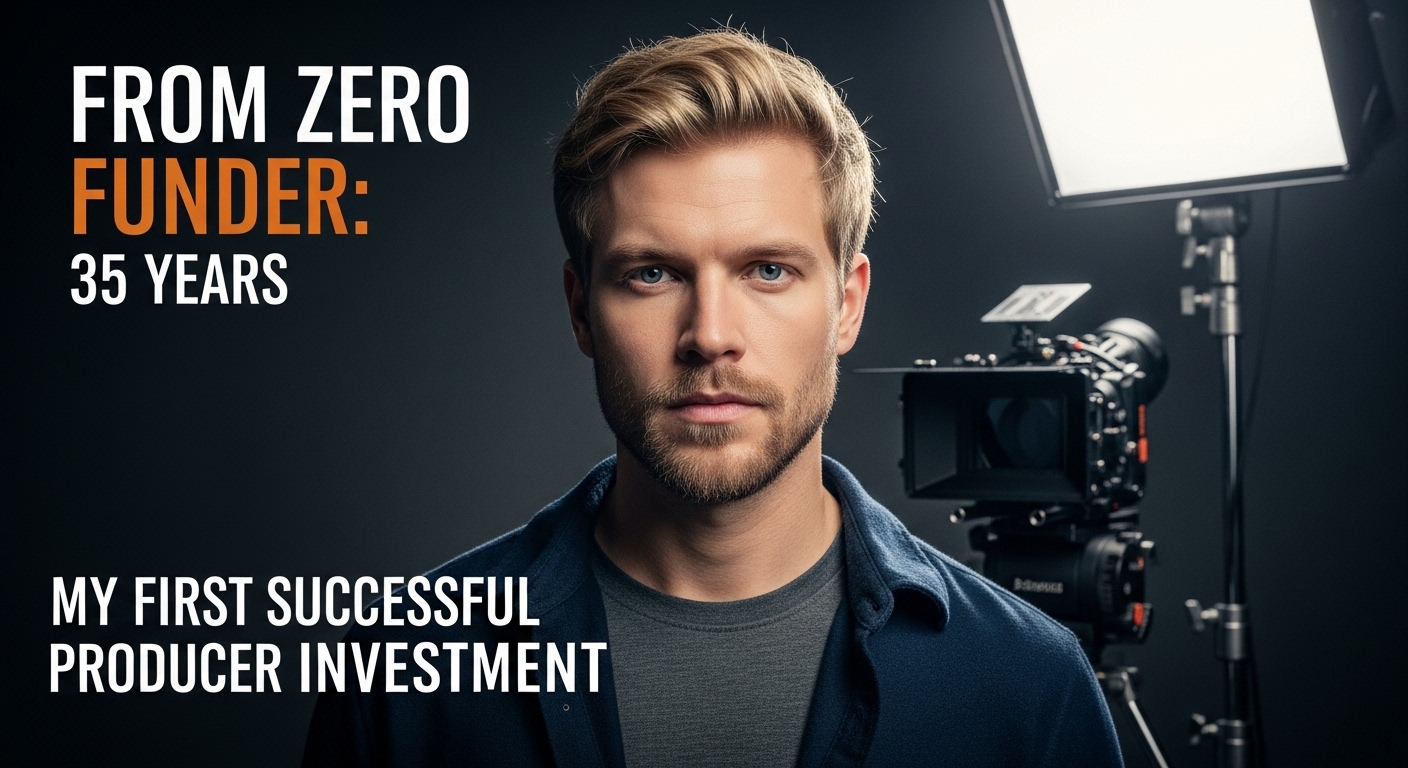The world of cinema is a vibrant tapestry of storytelling, creativity, and artistic expression. In this realm, film festivals stand as beacons of cinematic excellence, where filmmakers from all corners of the globe converge to showcase their work and celebrate the magic of the silver screen. But amidst the multitude of film festivals scattered across the planet, one question often arises:
Where is the biggest film festival in the world? In this exploration, we embark on a journey to uncover the answer, delving into the grandeur, history, and significance of the largest film festival that has captured the hearts and imaginations of cinephiles worldwide.
Where Is the Biggest Film Festival in the World?
The Cannes Film Festival, often referred to as Festival de Cannes, is the largest and most prestigious film festival globally.
The Cannes Film Festival is an annual event held in Cannes, France, which attracts filmmakers, celebrities, and cinephiles from all over the world. It showcases a diverse range of films, from independent productions to major studio releases, making it a significant event in the global film industry.
The festival has been running since 1946 and has grown in stature over the years, becoming a symbol of excellence in cinema. It is known for its glamorous red carpet events, premieres of highly anticipated films, and the prestigious Palme d’Or award, which is awarded to the best film in the competition.
Where is the biggest film festival in the world held?
The biggest film festival in the world, the Cannes Film Festival, is held in the picturesque city of Cannes, located on the French Riviera in the south of France. Cannes is known for its stunning Mediterranean coastline, luxury hotels, and vibrant cultural scene, making it an ideal backdrop for the festival’s glamorous events and film premieres.
The festival primarily takes place at the Palais des Festivals et des Congrès, a modern conference center located along the iconic Promenade de la Croisette. This venue hosts film screenings, press conferences, and the famous red carpet ceremonies that attract attention from around the globe.
How long has the biggest film festival in the world been running?
The Cannes Film Festival, known as Festival de Cannes, has a rich history and has been running since 1946. As of 2023, it has been in existence for 77 years. Over this time, it has evolved into one of the most prestigious and influential film festivals globally, celebrating the art of cinema and showcasing the talents of filmmakers from all over the world.

What is the history of the biggest film festival in the world?
The history of the Cannes Film Festival is a storied one, marked by its evolution into a symbol of cinematic excellence and global cultural significance. The festival was founded in 1946 as an initiative to celebrate and promote international cinema after the disruption caused by World War II. Its first edition was initially planned for 1939 but was delayed due to the war.
The festival’s early years were characterized by a focus on artistic and cinematic quality, and it quickly gained recognition within the industry. In 1955, the iconic Palme d’Or award was introduced, becoming the festival’s highest honor for the best film in competition.
Throughout its history, the Cannes Film Festival has faced controversies, celebrated groundbreaking films, and played a pivotal role in launching the careers of many filmmakers. It has also adapted to the changing landscape of the film industry, embracing diverse genres and expanding its scope to include not only feature films but also documentaries, short films, and emerging digital formats.
Today, Cannes remains a vital platform for filmmakers to showcase their work, attracting top talent from the world of cinema and serving as a barometer for the state of global filmmaking.
How many films are typically shown at the biggest film festival in the world?
The Cannes Film Festival typically screens around 50 to 60 films during its main competition section, known as the Official Selection. These films compete for prestigious awards, including the Palme d’Or for the best film. Additionally, the festival features a variety of other sections, such as Un Certain Regard, Directors’ Fortnight, and International Critics’ Week, which collectively showcase dozens more films, bringing the total number of films screened at Cannes to over 100 in most years.
Beyond the official selections, Cannes also hosts special screenings, out-of-competition films, and retrospective screenings, making it a comprehensive showcase of international cinema.
What types of films are typically shown at the biggest film festival in the world?
The Cannes Film Festival is known for its diverse selection of films, spanning various genres and styles. While the festival primarily focuses on feature-length films, it also includes categories like short films, documentaries, and experimental cinema. The main types of films typically shown at Cannes include:
- Feature Films: These are the centerpiece of the festival and include a wide range of genres, from dramas and comedies to thrillers and arthouse cinema. Cannes often selects films that push artistic boundaries and explore complex themes.
- Short Films: Cannes provides a platform for short filmmakers, featuring short films in competition and special screenings. This allows emerging talent to gain recognition on an international stage.
- Documentaries: Cannes recognizes the importance of documentary filmmaking and showcases impactful documentaries that tackle pressing social, political, and environmental issues.
- Experimental and Avant-Garde Films: The festival’s commitment to the art of cinema extends to experimental and avant-garde works that challenge conventional storytelling and visual techniques.
- Special Screenings: These may include restored classics, anniversary screenings, or films that do not fit into the competitive categories but are of historical or cultural significance.
Cannes’ commitment to diversity in film selection ensures that it appeals to a broad audience of cinephiles and industry professionals.
How many people attend the biggest film festival in the world each year?
The attendance at the Cannes Film Festival varies from year to year, but on average, it attracts tens of thousands of attendees annually. This includes filmmakers, actors, producers, film industry professionals, journalists, and film enthusiasts from around the world. The festival’s international appeal, star-studded red carpet events, and the opportunity to see groundbreaking films draw a significant crowd.
Cannes also hosts numerous parallel events, including market screenings, industry meetings, and panel discussions, which contribute to its substantial attendance figures. While the exact number of attendees may fluctuate, Cannes remains a major gathering place for the global film community.

What are some of the most famous films that have premiered at the biggest film festival in the world?
The Cannes Film Festival has been a launching pad for many iconic films that have left a lasting mark on cinematic history. Some of the most famous films that premiered at Cannes include:
- “Pulp Fiction” (1994): Directed by Quentin Tarantino, this groundbreaking film received the Palme d’Or and became a cultural phenomenon.
- “Apocalypse Now” (1979): Francis Ford Coppola’s epic war film had its world premiere at Cannes, garnering critical acclaim.
- “The Tree of Life” (2011): Terrence Malick’s visually stunning and contemplative film received the Palme d’Or and was celebrated for its unique storytelling.
- “The Pianist” (2002): Roman Polanski’s poignant Holocaust drama won the Palme d’Or and later earned multiple Academy Awards.
- “Amour” (2012): Directed by Michael Haneke, this emotionally powerful film about an elderly couple won the Palme d’Or and went on to receive critical acclaim worldwide.
These films, among many others, not only received accolades at Cannes but also left a significant impact on global cinema.
What are some of the most famous directors who have premiered their films at the biggest film festival in the world?
Cannes has a history of showcasing the work of renowned directors from around the world. Some of the most famous directors who have premiered their films at the Cannes Film Festival include:
- Alfred Hitchcock: The legendary British director premiered his film “To Catch a Thief” at Cannes in 1955.
- Martin Scorsese: His films, including “Taxi Driver” and “Mean Streets,” have screened at Cannes and received critical acclaim.
- Ingmar Bergman: The Swedish director’s works, such as “Persona” and “Fanny and Alexander,” have been celebrated at the festival.
- Federico Fellini: The Italian maestro presented films like “La Dolce Vita” and “8½” at Cannes, earning recognition and awards.
- Akira Kurosawa: The Japanese filmmaker showcased “Rashomon” and “Kagemusha” at Cannes, contributing to his international reputation.
- Pedro Almodóvar: The Spanish director has a strong Cannes presence, with films like “All About My Mother” and “Talk to Her” receiving awards and acclaim.
These directors, among others, have left an indelible mark on the history of cinema, and their work continues to be celebrated at Cannes and beyond.
What are some of the most famous actors who have attended the biggest film festival in the world?
The Cannes Film Festival attracts a constellation of famous actors who grace the red carpet and contribute to the festival’s star-studded atmosphere. Some of the most famous actors who have attended Cannes include:
- Marilyn Monroe: The iconic American actress made a memorable appearance at Cannes in 1955 while promoting “The Seven Year Itch.”
- Grace Kelly: The Hollywood star and future Princess of Monaco attended Cannes multiple times, adding glamour to the festival.
- Brad Pitt: A regular at Cannes, Pitt has premiered several of his films, including “Inglourious Basterds” and “The Tree of Life.”
- Nicole Kidman: The Australian actress has been a Cannes fixture, appearing in films like “Moulin Rouge!” and “The Others.”
- Cate Blanchett: Known for her exceptional talent, Blanchett has been a Cannes favorite, with films like “Blue Jasmine” earning acclaim.
- Leonardo DiCaprio: The Oscar-winning actor has graced Cannes with his presence during the promotion of films like “The Great Gatsby” and “Once Upon a Time in Hollywood.”
These actors, among many others, contribute to the festival’s allure, and their participation adds to the excitement and glamour of Cannes each year.
What are some of the most prestigious awards given out at the biggest film festival in the world?
The Cannes Film Festival, being the biggest and one of the most prestigious film festivals globally, presents several coveted awards. Some of the most prestigious awards given out at Cannes include:
- Palme d’Or: This is the highest honor at Cannes, awarded to the best film in the Official Selection. Winning the Palme d’Or can significantly boost a film’s international recognition and prestige.
- Grand Prix: The Grand Prix is the second-highest prize at Cannes and is often awarded to a film of exceptional quality, just below the Palme d’Or.
- Best Director: Recognizing outstanding direction, this award honors the filmmaker who has demonstrated exceptional skill in bringing their vision to the screen.
- Best Actor and Best Actress: These awards celebrate exceptional performances by actors and actresses in leading roles.
- Jury Prize: This award acknowledges films that have impressed the festival’s jury with their unique qualities and creativity.
- Un Certain Regard Prize: Given to films in the Un Certain Regard section, this award highlights works that offer fresh perspectives and innovative storytelling.
- Camera d’Or: Presented to the best debut feature film across all sections of the festival, this award supports emerging talent.
These awards contribute to the global recognition of filmmakers and their works, making Cannes a crucial platform for the film industry.
How are films selected to be shown at the biggest film festival in the world?
The selection process for films at the Cannes Film Festival is highly competitive and meticulous. Films are chosen through a multi-tiered selection process:
- Submission: Filmmakers, producers, or distributors submit their films for consideration to the festival organizers. Submissions typically open several months before the festival.
- Pre-Selection: The festival’s selection committee watches the submitted films and creates a shortlist. These committee members are experienced in the film industry and have a deep understanding of the festival’s criteria.
- Official Selection: From the shortlisted films, the festival’s artistic director and selection committee choose the films that will be part of the Official Selection. This includes films in competition for the Palme d’Or and other awards.
- Parallel Sections: In addition to the Official Selection, Cannes hosts parallel sections like Un Certain Regard, Directors’ Fortnight, and International Critics’ Week, which have their own selection committees and criteria.
The selection process aims to showcase a diverse range of films, including those from established directors and emerging talents, while upholding the festival’s commitment to artistic quality and innovation.
What are some of the most popular events that take place at the biggest film festival in the world?
The Cannes Film Festival offers a wide array of events that draw significant attention from attendees and the media. Some of the most popular events include:
- Red Carpet Premieres: The red carpet ceremonies for film premieres are among the most glamorous events at Cannes. Celebrities, filmmakers, and industry professionals walk the red carpet in high fashion, creating a spectacle that captures global attention.
- Award Ceremonies: The Palme d’Or and other prestigious awards are presented during a grand ceremony attended by industry luminaries and the media.
- Press Conferences: Filmmakers, directors, and cast members hold press conferences to discuss their films, providing insights into their creative processes and the themes explored in their work.
- Parties and Galas: Cannes is known for its lavish parties and galas, hosted by production companies, film studios, and sponsors. These events offer networking opportunities and celebrations of cinematic achievements.
- Masterclasses and Panels: Cannes often hosts masterclasses and panel discussions featuring renowned filmmakers and industry experts, providing valuable insights into the world of cinema.
- Market Screenings: The Cannes Marché du Film (Film Market) is a hub for industry professionals to buy, sell, and promote films. Market screenings are integral to this business aspect of the festival.
These events contribute to the festival’s vibrant atmosphere and global appeal, making Cannes a cultural and industry hotspot.
How has the biggest film festival in the world evolved over time?
The Cannes Film Festival has undergone significant evolution since its inception in 1946. Some key aspects of its evolution include:
- Growth in Size and Scope: Cannes has expanded to include more sections and films over the years, embracing diverse genres, formats, and storytelling approaches.
- Internationalization: Cannes has increasingly become a global platform, welcoming filmmakers and films from around the world. It has also broadened its reach by featuring more non-French films.
- Inclusion of New Media: The festival has adapted to changing media landscapes by including digital formats, VR experiences, and web series in its selections.
- Diversity and Inclusion: Cannes has made efforts to address gender imbalance in film by promoting more films directed by women and creating the Women in Motion initiative to discuss gender equality in cinema.
- Technological Advancements: The festival has embraced new technologies for film production, distribution, and presentation, reflecting the evolving film industry.
- Social and Cultural Relevance: Cannes has played a role in shaping the cultural discourse around contemporary issues, as seen in the selection of films that tackle pressing social and political themes.
Cannes continues to adapt and evolve, ensuring its continued relevance in the ever-changing world of cinema.
What are some of the controversies that have surrounded the biggest film festival in the world?
The Cannes Film Festival has been no stranger to controversy throughout its history. Some notable controversies include:
- Netflix and Streaming Services: Cannes faced backlash for its stance on films from streaming platforms like Netflix. In 2017, the festival introduced a rule that required films in competition to have a theatrical release in France, excluding Netflix originals.
- Political Protests: Cannes has seen political protests and disruptions, including the 1968 protests that led to the festival’s cancellation and the withdrawal of films in solidarity with protests against government policies.
- Booing and Walkouts: Some films screened at Cannes have received mixed reactions, leading to booing and walkouts during screenings, which can generate significant media attention.
- Jury Decisions: The festival’s jury decisions, especially for the Palme d’Or, have occasionally sparked debates and controversies, with some feeling that certain films were unjustly overlooked or awarded.
- Representation and Gender Equality: Cannes has faced criticism for its lack of gender diversity in its Official Selection, leading to initiatives like the Cannes Women’s Network and discussions about gender parity in the film industry.
These controversies reflect the complex dynamics of the film world and Cannes’ position at the forefront of cinematic discourse.
How does the biggest film festival in the world compare to other major film festivals around the world?
The Cannes Film Festival is often regarded as the most prestigious and influential film festival globally, but it is not the only one of its kind. Here’s how it compares to other major film festivals:
- Venice Film Festival: The Venice Film Festival, held in Italy, is one of Cannes’ main competitors in terms of prestige. It’s known for launching Oscar contenders and is the oldest film festival in the world.
- Berlin International Film Festival (Berlinale): Berlinale, held in Germany, focuses on socially and politically relevant films. It’s known for its emphasis on art-house cinema.
- Toronto International Film Festival (TIFF): TIFF, in Canada, is a significant North American festival known for its strong lineup of films and its impact on the awards season.
- Sundance Film Festival: Sundance, in the United States, is a vital showcase for independent cinema, often featuring groundbreaking films that later gain mainstream success.
- Cannes vs. Oscars: While Cannes celebrates artistic excellence, the Academy Awards (Oscars) have a broader commercial focus, with films often seeking recognition at both events.
Cannes remains distinctive due to its glamorous red carpet events, exclusive competition, and its role as a global marketplace for film distribution. It’s a key destination for filmmakers and industry professionals looking to gain international recognition.
What are some of the other major film festivals around the world?
Apart from Cannes, several major film festivals worldwide play pivotal roles in the film industry. Some of these include:
- Venice Film Festival (La Biennale di Venezia): Held in Venice, Italy, it’s one of the oldest and most prestigious film festivals globally, known for launching award-winning films.
- Berlin International Film Festival (Berlinale): Berlinale, in Germany, is renowned for its commitment to art-house cinema and its Golden Bear award.
- Toronto International Film Festival (TIFF): Held in Canada, TIFF is a major North American festival known for its diverse film lineup and influence on the awards season.
- Sundance Film Festival: Located in the United States, Sundance is the premier showcase for independent and groundbreaking cinema.
- Venice vs. Berlin: Venice and Berlinale are known for their artistic focus, while Cannes combines artistry with commercial appeal.
- Locarno Film Festival: Located in Switzerland, it showcases international cinema, emphasizing auteur-driven films.
- Tokyo International Film Festival: One of Asia’s most prominent festivals, it screens a wide range of Japanese and international films.
These festivals each have unique characteristics and play crucial roles in promoting cinema regionally and internationally.
How do film festivals impact the film industry?
Film festivals have a significant impact on the film industry in several ways:
- Exposure and Promotion: Festivals provide a platform for films to gain exposure, generate buzz, and attract distributors, increasing their chances of wider distribution and commercial success.
- Talent Discovery: Festivals often introduce emerging filmmakers, actors, and other industry professionals to the global stage, launching their careers.
- Marketplace for Distribution: Many festivals host film markets where industry professionals can buy and sell distribution rights, fostering international collaborations and distribution deals.
- Awards and Recognition: Winning awards at prestigious festivals like Cannes can lead to critical acclaim, increased box office earnings, and Oscar consideration.
- Networking and Collaboration: Film festivals bring together industry professionals, facilitating networking, partnerships, and collaboration on future projects.
- Cultural Impact: Festivals can influence cultural discussions by showcasing films that tackle pressing social, political, and cultural issues.
Overall, film festivals play a vital role in shaping the film industry by nurturing talent, promoting films, and serving as a marketplace for the exchange of ideas and content.
How do film festivals impact the local economy of the cities where they are held?
Film festivals can have a substantial economic impact on the cities where they are hosted:
- Tourism: Festivals attract attendees from around the world, boosting tourism. Visitors spend money on accommodations, dining, shopping, and local attractions.
- Hospitality Industry: Hotels, restaurants, and bars often see increased business during festivals, leading to higher revenues and job opportunities.
- Local Businesses: Festival-goers frequent local businesses, such as souvenir shops, boutiques, and transportation services, contributing to the local economy.
- Cultural Promotion: Festivals enhance the city’s cultural reputation, potentially leading to increased tourism in the long term.
- Infrastructure Development: Cities may invest in infrastructure improvements, such as renovating theaters and venues, to accommodate festival activities.
- Film Production: Festivals can stimulate local film production and encourage collaboration between international and local filmmakers.
However, the economic impact can vary based on the scale of the festival and the city’s capacity to host large-scale events.
What is the future of the biggest film festival in the world?
The future of the Cannes Film Festival is likely to be shaped by ongoing changes in the film industry and global dynamics. Some key factors that may influence its future include:
- Digitalization: Cannes may continue to adapt to the digital age by exploring virtual screenings and online components, making it more accessible to a global audience.
- Diversity and Inclusion: The festival is expected to further address issues of diversity and gender equality in film, with increased representation and inclusivity in its selections.
- Evolution of Film Formats: Cannes may embrace emerging formats, such as VR and immersive storytelling, to stay at the forefront of cinematic innovation.
- Cultural Relevance: The festival is likely to remain a platform for films that tackle pressing global issues, reflecting the evolving cultural landscape.
- Globalization: Cannes will likely continue to welcome filmmakers and films from around the world, reflecting its international reach.
- Industry Impact: As Cannes remains a critical marketplace for film distribution, it will play a role in shaping the future of the film industry, particularly in the post-pandemic landscape.
In summary, Cannes is expected to evolve while retaining its status as the world’s premier film festival, adapting to industry changes and societal developments while remaining a vital platform for cinematic excellence.
Conclusion:
As we draw the curtain on our cinematic journey, we have discovered that the title of the biggest film festival in the world belongs to the Cannes Film Festival, an event that has transcended its humble beginnings to become a global icon of cinema. With its glitz, glamour, and unshakable commitment to the art of filmmaking, Cannes has rightfully earned its place at the pinnacle of the film festival hierarchy.
However, let us not forget that beyond the prestige of Cannes, there exists a rich tapestry of film festivals across the globe, each contributing to the ever-evolving landscape of cinema in their unique ways.
From Sundance’s celebration of independent filmmaking to Berlinale’s focus on international cinema, these festivals weave together the diverse threads of cinematic expression, reminding us that the world of film is boundless, diverse, and endlessly enchanting.
Wherever you may find yourself on this cinematic odyssey, remember that the magic of film knows no bounds, and there’s always a film festival waiting to inspire, entertain, and provoke thought. Consider reading >>>> What Happens If You Win At a Film Festival? to learn more about festivals

I am a highly experienced film and media person who has a great deal to offer to like-minded individuals. Currently working on several exciting projects, I am a film and media practitioner for over a decade. I have achieved a great deal of success in my professional career.





